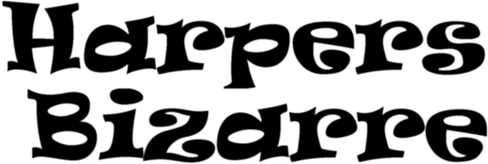 |
Lyrics Page |
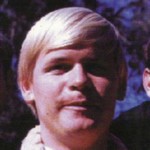 |
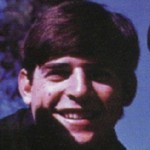 |
 |
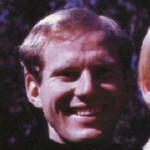 |
 |
||||
| Ted Templeman vocals drums trumpet guitar |
Dick Scoppettone guitar vocals |
Eddie James guitar vocals |
Dick Yount guitar bass drums |
John Peterson |
The Ted Templeman interview Q: Tell me a little about your career in music that led up to The Harpers Bizarre? TT: Well, my grandfather owned a music store, so I was around music quite a bit. I played piano and then trumpet. I was a First Chair Trumpet for several years. I also played drums in a jazz band and then an R&B band. Then I went to Santa Clara University and got a degree in history. They didn't offer any music programs when I got there, so I took tutorials in music. But, when I was in college I always played music and I played in a group called  The Tikis, which evolved into The Harpers Bizarre. We wore Bermuda
shorts in The Tikis. (Laughter) You know, suits that were cut off at the
knee...(Laughter)
The Tikis, which evolved into The Harpers Bizarre. We wore Bermuda
shorts in The Tikis. (Laughter) You know, suits that were cut off at the
knee...(Laughter)Q: You played at The Cow Palace, I understand, during this time... TT: Yeah. They were shows that Sly Stone, Tom Donohue and Bob Mitchell put on...that was where Autumn Records came in. They had The Beau Brummels, so we really wanted to be on Autumn because The Beau Brummels were huge at that time... Q: Did you audition for Donohue and Mitchell? TT: Yes, we auditioned - and cut a couple of sides... Q: "Pay Attention To Me"? TT: Yes, that and a few more. Some of then didn't get released. Then Warner Bros. bought Autumn Records and they brought in Lenny Warnoker. The first thing Lenny did was The Mojo Men's "Sit Down, I Think I Love You", and then he had this idea of doing "Feelin' Groovy" from the Simon & Garfunkel album, PARSLEY, SAGE, ROSEMARY & THYME. Q: Lenny said that he was quite taken with "Good Vibrations", which has just come out at the time, and he was inspired by that in the arrangement of "Feelin' Groovy"--stretching it out, and then bringing in Leon Russell... TT: Yeah. Actually it was Lenny's idea to do that...Leon had the idea of using voices instead of strings and woodwinds instead of strings--it was Lenny's idea to modulate. Lenny always likes to give other people credit. Leon wrote great charts, but a lot of those things were, in fact, Lenny's ideas. Lenny was really great at picking things up. For instance, in The Tikis, I was the drummer and there was only one song that we all sang together. Lenny really picked up on that kind of sound and said, 'That would be right'...so he could spot things that would really work well. We cut that ("Feelin' Groovy") and a song called "Come Love" in one day and mixed them on the next. Jim Gordon played drums on that, Leon played keyboards, Glen Campbell played guitar...Those people, as you know, were the hot studio cats at that time. I never really wanted to be a singer, and never will be. I was just trying to do what Lenny wanted. Lenny is the best producer on the planet, I think. It's great to have somebody like that just guide you through. Q: So, you first went in and cut those two tracks as a single? TT: Yes. In those days if you had a hit, then you could go in and cut an album. At that point we were thrown into the whole pop star thing, touring...We played second billing to The Beach Boys. Carl Scott was our manager and he went with us on all of those gigs. At the same time as that, we were commuting to L.A. to record our first album (FEELIN' GROOVY). Lenny thought it would be a great idea to make it into a concept album, and with the budget we had, he did a great job. It was his idea to use writers like Van Dyke (Parks) and Randy Newman. In fact, Randy's arrangements on that album were the first ones that he ever did. Q: Randy's songs really mixed the sweet with the bittersweet... TT: That's it, exactly. Randy's perception is great. Take the song "Happyland", you know, it's kind of sad, about childhood memories, and you can't go back. There's also some funny drug references, 'any ride for just one dime', things like that. Q: Van Dyke's song on that first album, "Come To The Sunshine". He recorded it as a single before you did. Any recollections of hearing that? TT: No, he just came in and played it for us on the piano. Lenny probably heard the record. Randy came in and played us all of his stuff. In fact, I've still got all of Randy's original demos, which are great... Q: I'll bet... TT: Oh, you know it...really amazing. Also, on the road, we used to do songs of his that we never recorded, like "Political Science". But, Lenny's idea of taking a group of great writers and putting them all together on an album was just terrific. Van Dyke's song, "High Coin", on the second album is, to me, the highlight of the whole Harpers thing... Q: Yes, you can't top that one... TT: No, you can't. It's just amazing. Q: Perry Botkin did some arrangements for you guys as well, correct? TT: Yes, he came in and wrote the actual charts. But overall, Van Dyke had a lot to do with the recording process...he was in there. "Anything Goes" was his idea; then Perry went in and wrote the chart. But, a lot of the vocals are Van Dyke and me, not always Dick Scoppettone and me. Q: Really? TT: Yeah, he blended in a lot. For instance, on "Anything Goes" it was Van Dyke and me doing those backround harmonies. He was involved in a lot of the arrangements, even the vocal 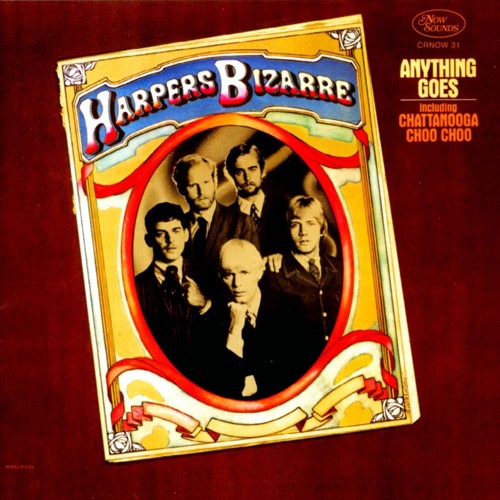 arrangements. He didn't always take credit for them. Van Dyke's record,
SONG CYCLE, is really a ground-breaking record, even more than SGT
PEPPER. It's even better than PET SOUNDS, in my opinion. PET SOUNDS has
moments, but I think, as a whole piece, SONG CYCLE was really the event
of the time.
arrangements. He didn't always take credit for them. Van Dyke's record,
SONG CYCLE, is really a ground-breaking record, even more than SGT
PEPPER. It's even better than PET SOUNDS, in my opinion. PET SOUNDS has
moments, but I think, as a whole piece, SONG CYCLE was really the event
of the time.Q: Tell me about Ron Elliot (Beau Brummels songwriter/guitarist)...he worked on some of your records too.. TT: Yes, he did...but there wasn't as much of a connection. Ron was a great guy and everything, but the real connection is that Lenny was the main guy and Van Dyke was like this jester who could make things happen and be very helpful putting our records together. You have to realize the we became very busy with touring and doing a lot of television. We needed Lenny and Van Dyke to really hold down the studio thing. Q: What television shows did you perform on? TT: Well, we were one of the few groups of that time who got on shows like "The Red Skelton Show" and "Kraft Music Hall". We would do songs with George Burns and a lot of skits. So, it wasn't just rock and roll shows like "Shindig". We would be running around doing all of these things, then come back to L.A. and have to make a record fairly quickly. That's where Lenny and Van Dyke came in. Aside from them, all that was needed most of the time was myself and Dick. Everyone else would go off to Tahiti, or whatever, with their girlfriends and I would just kind of camp out in the studio. The recording process was always much more interesting to me. I really didn't like going out on stage...I thought it was just insane. It was definitely a foreign concept for me. I don't have a great voice, but I have a sound--sort of--but I didn't have any control of it. So, it's really horrible if you're out on the road and Ten Years After is opening up for you. (Laughter) Q: Aside from working with Lenny, what were some of your inspirations in the record making process? TT: I used to listen to jazz records, like Miles Davis, and think about how I would have made Tony Williams' drums sound. I also studied R&B records like Sam and Dave. If I didn't have to go out on the road then, I would have just hung out in the studio with Lenny full-time, because he was just so creative. I actually learned a lot about making records by just hanging out, and Lenny involved me a lot. He would say, 'Come in and mix this track with me.' He took advantage of someone who wanted to help. Q: At that time a lot of artists didn't get a chance to do that... TT: No... Q: In fact, I've heard that a lot of producers wouldn't even allow artists into the control room... TT: That's true, absolutely. See, that's the great thing about Lenny. He's the first guy to give people an opportunity and the last guy to take credit for his own contributions. He's finally starting to open up a bit and (laughs) take responsibility for what he does. (Laughter) Q: Let's jump ahead a little bit. What was going on at the end of The Harpers Bizarre days? TT: Well, Matt, I can't watch SPINAL TAP, 'cause it's exactly like our career...(Laughter) I'm not kidding you! (Laughs) The last gig we ever played at was at an air force base and we had to set up our own equipment--for a colonel's wife's birthday party! (Laughter) By then we were just broke. I kind of bummed around Pasadena for awhile. My wife supported us, then Lenny threw me some bones. I worked on arrangements for Nancy Sinatra, worked with Ry Cooder, stuff like that, and then I finally got a job here (Warner's) as a tape listener for about $75 a week. It was really demeaning. The secretaries would look at me funny, because prior to that we had been stars. I mean, it was us and The Association. All of the sudden I was a go-fer. But, you know what? It didn't matter, because I got to do what I really wanted to do and Lenny gave me the shot....Don't forget Joe Smith, he was very helpful. Joe decided to hire me. Lenny talked him into it. We signed The Doobie Brothers, and then he took me up to meet Van Morrison. So, I owe more to Joe Smith than anyone for my success as a record producer--aside from Lenny. Lenny convinced him to give me a shot. Q: Speaking of the Doobie Brothers, one of the groups that it seems that they modelled themselves after was Moby Grape... TT: Oh, yeah! They idolized them, absolutely. Q: Did you ever get to see Moby Grape? TT: Sure...they were playing up in Saulsalito at a place called The Ark. They were making their first record and we got to see them all the time. In fact--and you'll love this--I saw them open for The Buffalo Springfield at The Ark... Q: Oh, man, what a double-bill. TT: It was amazing. I liked The Springfield more because they had better songs, like, "Sit Down, I Think I Love You", and Neil's songs. Moby Grape were fantastic players, but the thing that made The Springfield was the material. The depth of their songs was on another level. Q: Lenny told me about how much he wanted to sign them... TT: Yeah, it was too bad that we didn't get them here at Warners. The first album that they did for Atlantic was such a disappointment for me, because I had seen them live many times, and I thought that they were the best band--period. You'd hear those three guitars and those harmonies, it was incredible. But when I heard that first album, I thought it sounded like shit. They needed a REAL producer. Q: Let's go back to The Harpers Bizarre...the ANYTHING GOES album... TT: Well, that was really fun. That was when Lenny and I really got to work together. It's a really fun album. That's Joe Smith on there doing the intro to the record, "This Is Only The Beginning", as Smilin' Eddie Fatootsie. (Laughs) Q: Now, you guys had been writing songs before this album, but this is the first Bizarre album that contained some of your songs...The one that I thought would have been a good single was, "Hey, You In The Crowd"... TT: Yeah, I wrote that, and yes, I remember thinking that it would have been a single, but Lenny thought it wasn't a strong enough song. Lenny thought that it was too un-hip--and in a way, it was....sort of a Fifth Dimension-type of arrangement. Q: I guess "Chattanooga Choo Choo" was the hit off that album... TT: Yes--and "Anything Goes", which I think was bigger on the East Coast. "You Need A Change" was a good track. Elliot did a good job on the arrangement for that. Q: Now, on the next album, SECRET LIFE, Ron did some nice work with you..."When I Was A Cowboy", "Sentimental Journey"... TT: "Sentimental Journey" is great. He did a fantastic job on that. Q: I Love his song on that album, "I Love You, Mama". TT: Let's see...how did that go? (Hums melody) 'Down along Louisiana bayou...' Yeah! That's a great song! But, my memories of that album are not as strong. I wasn't involved in SECRET LIFE as I was the previous two. Q: HARPERS BIZARRE 4 was a bit more down-home, eh? TT: At that point, the band was sort of in mutiny. We wanted to be ourselves. I played drums on a couple of tracks, I think "Soft Soundin' Music" and "Knock On Wood". We did "Leavin' On A Jet  Plane", which was a
tune we performed in our live shows. Lenny said something odd to me,
that he thought some of the things on the later records were better than
he realized at the time we were recording them... Plane", which was a
tune we performed in our live shows. Lenny said something odd to me,
that he thought some of the things on the later records were better than
he realized at the time we were recording them...Q: A lot of nice songs... TT: Yeah, they're not too bad. Q: "Vine Street", from SECRET LIFE... TT: Oh, yeah. I had wanted to do that one for a long time. I really pushed for it because I loved Van Dyke's version. It's such a great song. Q: Your song, "Bye, Bye, Bye", used as the intro, is very cool. It's an old song of yours, right? TT: Did we re-cut that? Q: Yes... TT: (Hums melody) 'Don't put your trust in me...' Oh yeah! Q: The word is out, man! (Laughter) TT: Was Harry Nilsson on any of these albums? Q: He's not credited... TT: Because we cut a song of his, "Poli High", and he sang on it too, I believe... Q: I've never heard of that! TT: Oh, it's real nice. It was a single. Q: Is that going to be on Warner Bros. upcoming Harpers Bizarre collection? TT: Yes, I think so. That should be out by the end of summer ('97). I think you'll like it. "Poli High", Harry wrote that song for us. He really wanted to be in this little inner circle of Van Dyke and Lenny, and he used to hang out with us. I think he sings on "The Battle Of New Orleans" from SECRET LIFE. Q: So, Harpers Bizarre pretty much broke up after that fourth album? TT: Well, the lowdown was that the rest of the band didn't want Lenny to produce us anymore, but I did. So, it was me against them. (Laughs) And that was it. They wanted their own voice and they were too stupid to realize what they had, which happens to so many bands...I fought it all the way. I think we probably would have had more of a career if we had stuck with Lenny. But hey, it happens...it happens to almost every band. Q: You learned a lot, though...a lot of tools that you took to your production career... TT: Oh yeah, like if you listen to a record that I did with The Doobie Brothers called LISTEN TO THE MUSIC...on "Black Water", I borrowed an idea that Lenny had for "Feelin' Groovy", where the music drops out and it's just the voices. Q: I guess during the Harpers days, you might have decided that you didn't want to be a rock star... TT: Oh, I hated that part of it. I knew that from when we first went out on the road. You know, when you're not good at something, it's a drag. Going out on tour, signing autographs, all that stuff wasn't my thing. The Harpers Bizarre was a studio group, so going out on the road was like a sham, you know? The good part of those years was working with Lenny, and I learned a lot. Also, we developed a really good friendship. As a matter of fact, there was hardly ever a night when we didn't talk on the phone. After I started working here (Warner's) in the mid-70's. we always talked on the phone every night for a couple of hours. We're still life-long friends. To me, I was so disappointed when he came to Warner's as a president, because he's one of the greatest producers. I mean, just listen to James Taylor's GORILLA, or the Rickie Lee Jones stuff...he really made some of the best records. Even the Gordon Lightfoot and Maria Muldaur stuff...he never made a bad record! See, Lenny gets intimidated by the fact that he's not a musician and that he doesn't know much about electronics. Electronics intimidate him. But, so what!? Jerry Wexler doesn't know anything about either one and he's one of the greatest producers of all time. To me, it was kind of sad to see him come over here and do what 48,000 other people could do, but none of them could do what he does. I think that some of the artists just grounded him down, you know? You get to a point where you just say, 'Fuck this, who needs it?' So that part, I DO understand (laughs) But, yeah, overall, I learned a lot. The Harpers period was a good experience for me. --- Ted Templeman was interviewed for the Terrascope summer 1996 By M. Greenwald THANKS: Yvonne Garcia, Diana Engle, Bob Merlis |